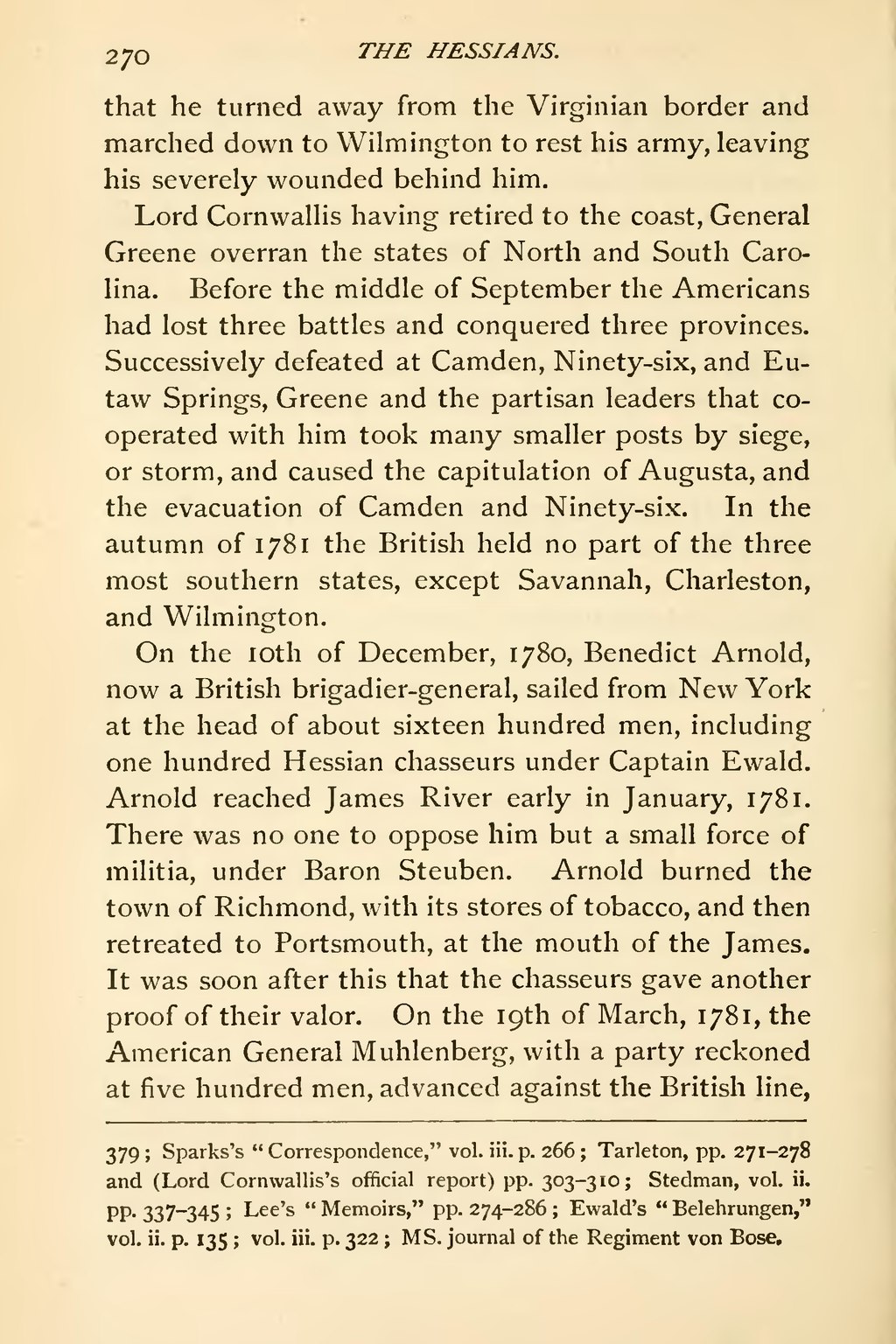that he turned away from the Virginian border and
marched down to Wilmington to rest his army, leaving
his severely wounded behind him.
Lord Cornwallis having retired to the coast, General Greene overran the states of North and South Carolina. Before the middle of September the Americans had lost three battles and conquered three provinces. Successively defeated at Camden, Ninety-six, and Eutaw Springs, Greene and the partisan leaders that co-operated with him took many smaller posts by siege, or storm, and caused the capitulation of Augusta, and the evacuation of Camden and Ninety-six. In the autumn of 1781 the British held no part of the three most southern states, except Savannah, Charleston, and Wilmington.
On the 10th of December, 1780, Benedict Arnold, now a British brigadier-general, sailed from New York at the head of about sixteen hundred men, including one hundred Hessian chasseurs under Captain Ewald. Arnold reached James River early in January, 1781. There was no one to oppose him but a small force of militia, under Baron Steuben. Arnold burned the town of Richmond, with its stores of tobacco, and then retreated to Portsmouth, at the mouth of the James. It was soon after this that the chasseurs gave another proof of their valor. On the 19th of March, 1781, the American General Muhlenberg, with a party reckoned at five hundred men, advanced against the British line,
